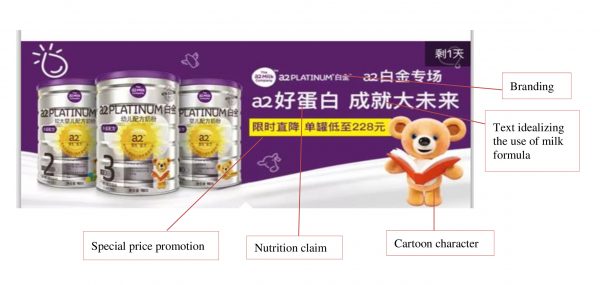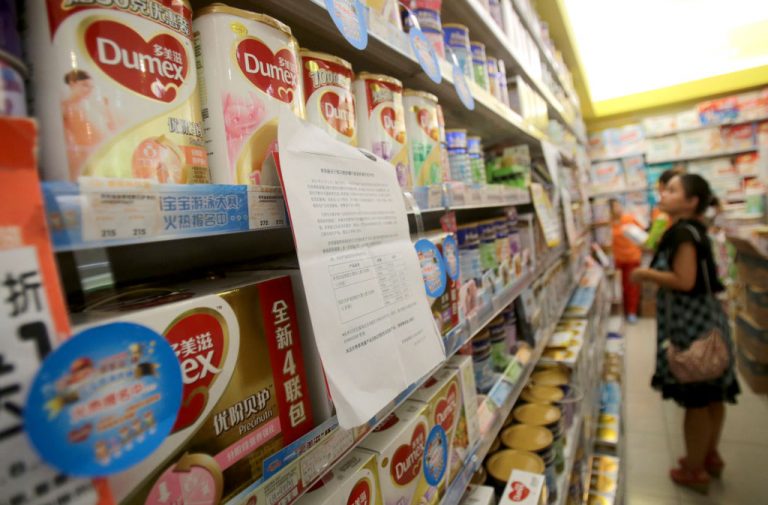A study examining hundreds of pregnancy and parenting apps employing advertising to target parents in mainland China went to great lengths to deprecate breastfeeding in favor of the consumption of baby formula, a 2019 study showed.
Additionally, close to half of all such advertisements studied were for brands controlled by Nestle, Danone, and Mead Johnson.
Methodology
Conducted by a trio of researchers from The University of Sydney, 556 apps found in the 360 App Store, China’s largest Android app store, were originally selected before being pruned down to 79.
The team clipped apps that:
- Were downloaded less than 1,000 times per month
- Focused on kids aged 3 or older
- Are broken or contained dead links
- Were actually games
- Focused instead on bedtime stories or lullabies
- Predicted the child’s height or helped choose a name
Android was chosen as the target research platform, rather than iPhone, because it occupies a greater than two third share of the total market, the paper stated.
Success
You are now signed up for our newsletter
Success
Check your email to complete sign up
From the 79 apps that made the shortlist, 605 different breast milk substitute (BMS) advertisements were collected, and then shortened to 353 after eliminating duplicates and ads that only sold milk formula for the elderly, teenagers, and other males.
Motives
In the Introduction portion of the study, the team stated that based on a 2017 WHO/UN report, “Despite the strong health message that breast is best for growing infants, and breastfeeding also benefits mothers, no country in the world fully meets the recommended breastfeeding guidelines.”
The report found a problem: among 194 countries, only 40 percent of children younger than 6 months old are exclusively breastfed, while only 23 countries have exclusive breastfeeding rates exceeding 60 percent.

The same study estimated that an investment of less than $5 USD per newborn could increase the global rate of exclusive breastfeeding beyond 50 percent by 2025.
While clearly stating, “Omnipresent marketing of BMS negatively affects breastfeeding practices,” the researchers added that one of several “powerful environmental factors” influencing the trend is what they described as the “ubiquitous presence” of BMS marketing.
They also estimated that the global milk formula market, which is “primarily composed of BMS” was projected to grow beyond $70 billion that year.
RELATED READING:
- Wuhan Institute Created a PCR Test for Monkeypox in February: Chinese Scientific Journal
- TikTok Learns User Desires in 40 Minutes, Curates Rabbitholed Content
- Instagram Use Is Harming the Mental Health of Young Girls, and Facebook Knows It: Report
Additionally, mainland China and Hong Kong’s contribution to global sales was already as high as 50 percent between 2011 and 2015.
The trio called China “the largest market for infant formula.”
Moreover, the team noted that the Chinese Communist Party had adopted The International Code of Marketing of Breast Milk Substitutes (Code) created by the WHO in 1981, an unenforceable legal framework creating international rules for the safe and science-based promotion of BMS.
But, “Driven by commercial interests, China repealed these legal measures in 2016, without any replacement, substantially weakening protection from harmful BMS promotion,” the study states.
“In China in particular, there are few health professional–endorsed parenting apps that advocate for breastfeeding and healthy infant feeding, and the space is primarily occupied by commercial entities,” the team added.
Results
Of the 353 advertisements from the 79 shortlisted apps, the team found only 31 companies were behind the movement, but pushed 44 brands and 79 brand variants.
15 of the companies were internationally owned while 16 were domestic Chinese.
In total, 14 brands and 156 ads were for products manufactured by Danone, Nestle, and Mead Johnson.
The usage of emotional imagery was employed heavily, with the most frequently utilized theme being a natural pasture, followed by parental love and a happy child.
The team explained, “Due to the 2008 Chinese milk scandal where milk formula was found to contain high concentrations of melamine and was estimated to cause tens of thousands of infants and children to develop severe kidney problems,” that the imagery “implies the pure source and high quality of milk formula, which plays to Chinese mothers’ food safety concerns around domestic brands.”
Additionally, marketing tools such as trademarks, logos, and colors were universally employed while directing prospective buyers to e-shops where special promotions, discounts, and limited time offers were utilized to close purchases.
Another common tactic among the ads were the usage of power words such as “super,” “gold,” “premium,” or “organic.”
The team pointed out several violations of the WHO’s Code, “Some brand variants advertised with claims of love and similar to breast milk in Chinese characters, which could increase exposure to idealized bottle feeding and raise desire to use milk formula.”
“Pregnant women and new mothers exposed to BMS ads containing the words close and similar believe infant formula is nutritionally equivalent to human milk,” they added.
The scientists didn’t mince words in their opinion of the practice, “The purpose of these marketing messages is to widen the use of formulas and normalize formula as an appropriate food for all infants and young children rather than as a specialized food for those unable to breastfeed.”














